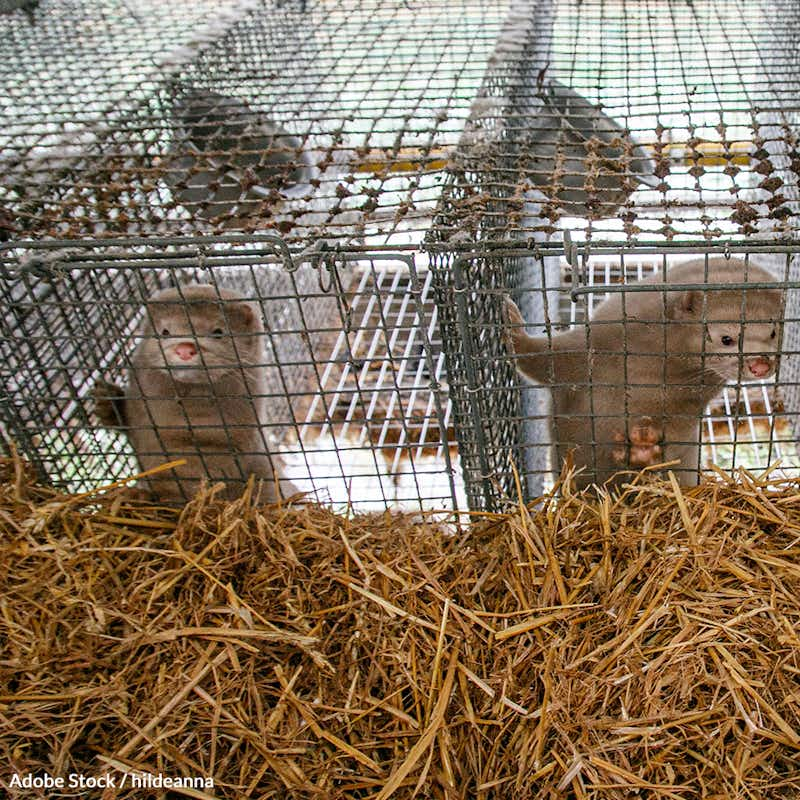Ban Cruel Trapping On Wildlife Refuges
24,477 signatures toward our 30,000 Goal
Sponsor: The Animal Rescue Site
Millions of animals meet horrific and painful deaths each year, as hunters use outdated trapping methods. Take a stand!

Animal trapping fuels an industry of cruelty and death in the United States.
Animals in fur farms live miserable lives in confinement, while those trapped in the wild often face an even worse fate1.
The latest method of trapping to come under scrutiny are body-gripping traps. These indiscriminate traps are used to trap and kill millions of animals each year in the United States. Conibear and steel-jaw leghold traps injure not only the target animals sought by trappers, but also hundreds of collateral victims each year, including endangered and threatened species, companion animals, livestock, and even people2.
On fur farms, the potential for disease to spread is greater in where animals are packed together tightly. In 2020 and 2021, such practices led to millions of mink farmed for the fur industry in the Netherlands were killed to stop the spread of coronavirus disease3.
Fur farms in the United States are not immune to outbreaks for disease, either. Not only have mink in fur farms in Utah, and Wisconsin tested positive for SARS-CoV-2 virus, which can cause COVID-19 in humans, toxoplasmosis and canine distemper outbreaks have also been reported4.
Anti-cruelty statutes largely exclude farmed animals, including those used for their fur, but public sentiment and protests over the last decade have prompted more states to ban fur, or regulate the practices hunters employ to trap furbearing animals5.
Today six states have regulations for minimum standards of care for animals in fur farms, with bans in place in just four states6.
It may take some time before farming animals for their fur is banned in the United States, as individual states must each pass their respective statutes. There is more urgent hope in a piece of legislation that could outlaw certain trapping methods, reducing the fur industry's reliance on cruelty in the wild.
The Refuge from Cruel Trapping Act, H.R. 4716, would prohibit body-gripping, leg-hold, snare and similar traps within the National Wildlife Refuge System. It was first introduced to the House of Representatives in December 2019 before being referred to the Subcommittee on Water, Oceans, and Wildlife7.
Help us save animals from slaughter. Click below and support the passage of the Refuge from Cruel Trapping Act!
- Born Free USA (2022), "Trapped: Exposing the Violence of Animal Trapping in the U.S."
- Animal Welfare Institute (18 October 2021), "Legislation to Ban Brutal and Indiscriminate Body-Gripping Traps Reintroduced."
- Martin Enserink, Science (9 June 2020), "Coronavirus rips through Dutch mink farms, triggering culls to prevent human infections.
- Susan A. Shriner, Jeremy W. Ellis, J. Jeffrey Root, Annette Roug, Scott R. Stopak, Gerald W. Wiscomb, Jared R. Zierenberg, Hon S. Ip, Mia K. Torchetti, and Thomas J. DeLiberto, "SARS-CoV-2 Exposure in Escaped Mink, Utah, USA."
- Born Free USA (2020), "Silent Suffering in Our Own Backyard: Fur Farming in the United States."
- Kenny Torrella, Vox (9 March 2022), "Most animal cruelty is legal on the farm. A judge is questioning that."
- Fur Free Alliance (2022), "Fur Bans."
- Rep. Nita M Lowey (2019), "H.R.5127 - Refuge From Cruel Trapping Act."
The Petition:
To U.S. Representative Nita Lowey,
Thank you for your dedication to the passage of the The Refuge from Cruel Trapping Act, H.R. 4716, and a safer future for wild animals on United States public lands.
Like you, I have been horrified by the brutality of body-gripping traps like strangling snares, Conibear traps and steel-jaw leghold traps, which are banned in more than 100 countries and in multiple U.S. states. These tools of cruelty have no place on federally owned refuges, where countless native species make their homes.
There is also collateral damage from these indiscriminate traps, which injure or kill hundreds of non-target animals each year, including pets and livestock.
Trapping is a barbaric form of hunting, most often causing animals immense suffering, long periods of distress, and an excruciating death. Some may even gnaw off their own limbs to escape, often dying of a painful infection days later.
I fully support the The Refuge from Cruel Trapping Act, H.R. 4716, and all efforts to reduce cruelty and animal suffering on public lands.
Sincerely,
 Welcome Back! Log In to Continue
Welcome Back! Log In to Continue